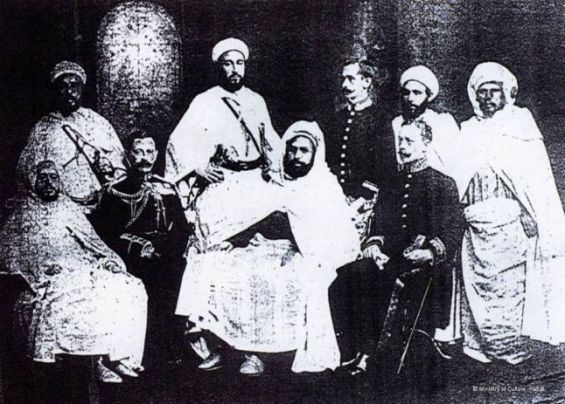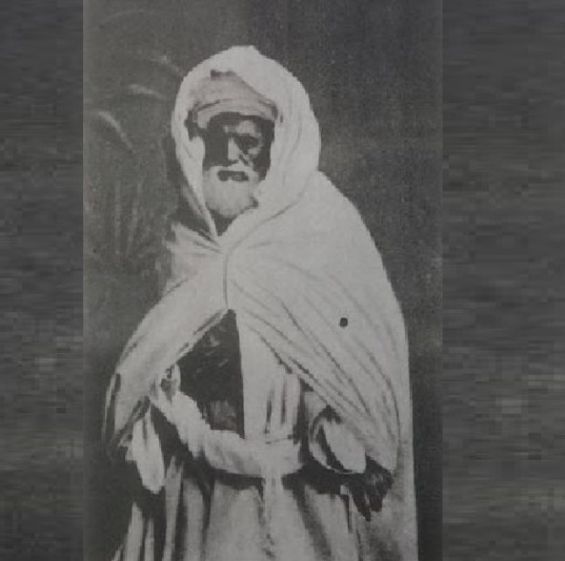At the beginning of the 19th century, Morocco was going through a tumultuous time. Torn by revolts, the sultanate headed by Moulay Abdrahman ibn Hisham was trying to calm down the messy situation inside the country and at the same time stand still in front of European powers.
However, Moulay Abderahman’s attempts to surpass the crisis have created confrontations with European countries. During his reign France invaded Algeria and the Franco-Moroccan War erupted in 1844, after the Alaouite dynasty was accused by the French of supporting the Algerian resistance leader Abd al-Qadir al-Jaza'iri.

In 1859, Moulay Mohammed IV succeeded to his father after he was defeated by the French at the Battle of Isly. The reign of the Sultan was also marked by another war, but this time against the Spaniards in 1859.
Hassan I's ambassador
The two wars fought by his predecessors, has opened the eyes of Moulay Hassan I, who ascended the throne 1873. Once proclaimed a ruler, He undertook several reforms, strengthening the army and empowering the makhzen.
Besides these efforts, he has also thought of diplomacy, sending diplomatic missions to Europe to avoid the eruption of a third war.
In 1876, Moulay Hassan chose Haj Mohamed Zebdi as his ambassador to Europe. The official served before as a Prefect of Rabat, after he was appointed by Moulay Abdrahmane bin Hisham, and held several positions during the Spanish-Moroccan war.

«During 1876, the amin Mohamed Zebdi had gone on an embassy to Europe», wrote Moroccan historian Khalid Ben Srhir in his book «Britain and Morocco During the Embassy of John Drummond Hay, 1845-1886» (2005, Routledge Curzon, translated by Malcolm Williams and Gavin Waterson).
Mohamed Zebdi in France
Indeed, the diplomat’s mission toured Europe, stopping by France, Belgium, England and Italy. Zebdi’s first destination was France which was the most serious foreign threat to Morocco.
According to the «Journal officiel de la République francaise» (June 1876), Haj Mohamed Zebdi arrived in Versailles on June the 10th, 1876. At 4 pm «the president received Sid El Hadj Mohamed el Zebdi, ambassador of His Majesty the emperor of Morocco», recalled the official document.
The Moroccan delegation, headed by Zebdi, was received at the Elyse palace. Once before the French President Patrice de Mac-Mahon, the Moroccan diplomat delivered a speech on behalf of the Alaouite Sultan.
«I am honored to stand before Your Excellency on behalf of His Majesty the Shereefian, the Prince of Believers, Emperor of Morocco. Sending me to France, His Majesty has entrusted me with the task of renewing linkages between the countries (…) As for myself, I am greatly satisfied for being with your Excellency».
Zebdi was warmly met by the French President who welcomed his message and the one sent by the Alaouite Sultan. After this Audience, the Moroccan delegation was taken to the hotel its members were staying at while in France.
Belgium and Great Britain
After France, historical resources recall that Mohamed Zebdi headed to Belgium. In his book, Khalid Ben Srhir, referred to this trip reporting that : «when (Zebdi) visited Belgium, he made frequent visits to a number of arms factories and Moulay Hassan ordered him to return with (…) a specimen».
In the 39th issue of the monthly magazine «Daaouat Al Haq» published by the Ministry of Habous and Islamic Affairs, it is mentioned that the French has welcomed Mohamed Zebdi after he returned from Belgium.
The same source indicates that the French provided a special ship for the diplomat to travel for Great Britain. Indeed, in the same year, the ambassador met Queen Victoria in London, where they discussed ways to protect English merchants in Morocco.

Zebdi had even sent a letter to Moulay Hassan informing him about the negotiation round he had with the Queen of England.
A Moroccan delegation in Italy
The ambassador went back to France and shortly after that headed to Italy. On the 22nd of August, Mohamed Zebdi was in Turin to meet King Victor Emmanuel III of Italy, reports «La Civilta cattolica» (1876).
The diplomatic delegation headed later to Rome and then to Florence where they stayed long enough to visit the city’s landmark before going back to Turin to meet the King, says the same source.
Zebdi’s Europe tour was concluded in Italy and he returned the same year to Tangier. His efforts, however, bore fruits during the 1880 Madrid Agreement, indicating that Morocco is an independent state. The treaty was «to preserve the territorial integrity of Morocco and to maintain equal trade opportunities for all», says Revisionist.





 chargement...
chargement...













